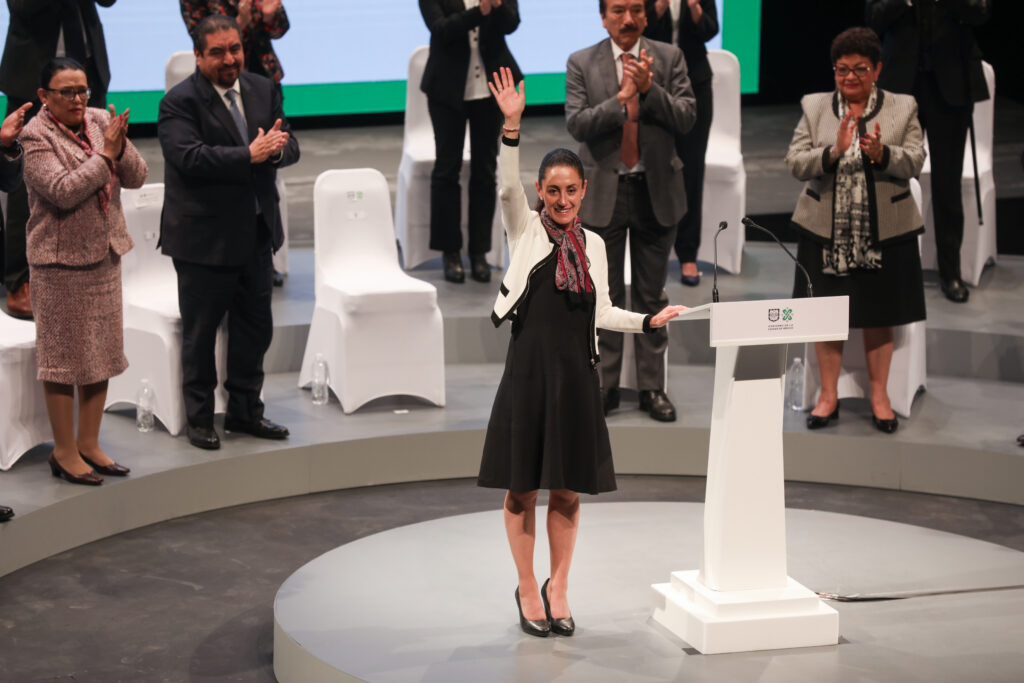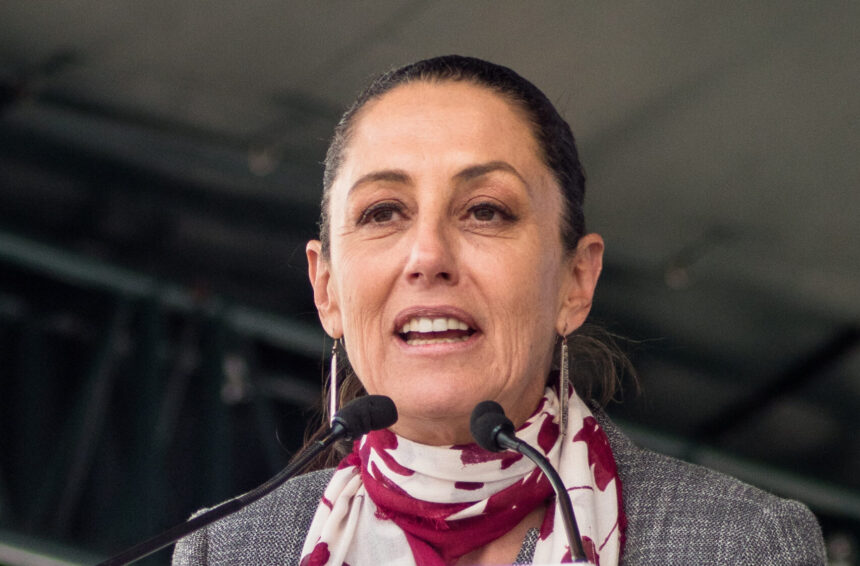Claudia Sheinbaum has been elected as Mexico’s first woman president in a historic landslide win. Mexico’s official electoral authority announced that preliminary results showed the 61-year-old former mayor of Mexico City winning between 58% and 60% of the vote in Sunday’s election. This gave her a lead of about 30 percentage points over her main rival, businesswoman Xóchitl Gálvez.
Ms. Sheinbaum will succeed her mentor, outgoing President Andrés Manuel López Obrador, on 1 October. A former energy scientist, Sheinbaum has promised to continue building on the “advances” made by López Obrador, focusing on welfare programs that have bolstered his popularity.
In her victory speech, Sheinbaum highlighted the historic significance of her win. She told cheering supporters, “For the first time in the 200 years of the [Mexican] Republic, I will become the first woman president of Mexico.” She emphasized that this achievement was not just for her but for all women. “I’ve said it from the start, this is not just about me getting [to the top office], it’s about all of us getting here.” She added, “I won’t fail you.”
Ms. Sheinbaum also thanked her rival, Xóchitl Gálvez, who conceded defeat. Prior to running for president, Sheinbaum served as the mayor of Mexico City, one of the most influential political positions in the country, seen as a stepping stone to the presidency.
Sheinbaum’s Jewish maternal grandparents fled from Bulgaria to Mexico escaping the Nazis, while her paternal grandparents came from Lithuania. Both of her parents were scientists, and she followed in their footsteps, studying physics before earning a doctorate in energy engineering. She spent years at a renowned research lab in California studying Mexican energy consumption patterns and became an expert on climate change. This background and her student activism earned her the position of environment secretary for Mexico City under Mayor Andrés Manuel López Obrador.

In 2018, Sheinbaum became the first female mayor of Mexico City, a position she held until 2023 when she stepped down to run for president. The election, which pitted Sheinbaum against Gálvez, has been seen as a pivotal moment for women in Mexico.
Edelmira Montiel, 87, expressed her gratitude for witnessing a woman elected to the highest office. “Before, we couldn’t even vote, and when you could, it was to vote for the person your husband told you to vote for. Thank God that has changed and I get to live it,” she told Reuters, referencing that women in Mexico were only allowed to vote in national elections starting in 1953.
Despite the celebration of two women as frontrunners, the campaign was marred by violent attacks. Alongside electing a new president, voters also chose all members of Mexico’s Congress, governors in eight states, the head of Mexico City’s government, and thousands of local officials. Local candidates, in particular, were targeted during the campaign, with the government reporting over 20 killings across Mexico, though other surveys put the total at 37.
Gálvez criticized the government and her rival for the violence in Mexico. She promised to be “the bravest president, a president who does confront crime” if elected, but did not provide detailed plans for tackling the powerful criminal cartels responsible for much of the violence. After Sheinbaum’s lead became unassailable, Gálvez called her. “I told her I saw a Mexico with a lot of pain and violence. I wished that she could solve the severe problems our people have,” Gálvez said.
One of the significant challenges for Sheinbaum will be tackling Mexico’s violent cartels. She has emphasized the need to address the root causes of violence and promised to invest in welfare programs to prevent young Mexicans from being recruited by criminal groups.
Regarding relations with the United States, Sheinbaum has pledged to ensure “a relationship of friendship, mutual respect, and equality” while promising to “always defend the Mexicans who are on the other side of the border.” Relations between the US and Mexico were strained under López Obrador, who has been in power since 2018 and could not run for a second term due to constitutional limits.
López Obrador supported Sheinbaum, and his popularity, with an approval rate close to 60%, significantly boosted her campaign. Many voters backed Sheinbaum because they wanted to see the continuation of Morena’s anti-poverty programs.


